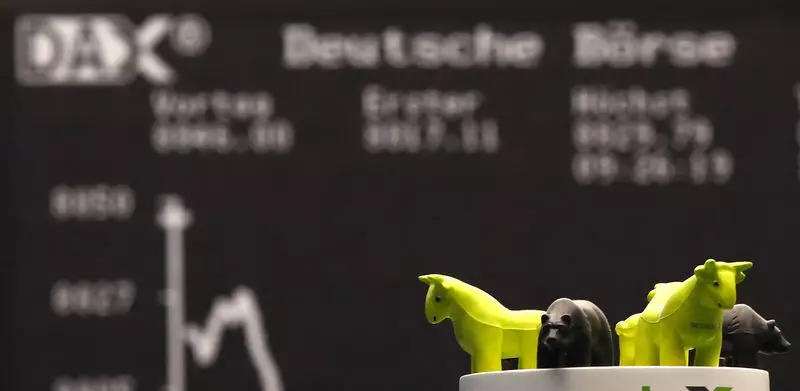As the last full trading day of the year approaches, European stock markets are experiencing a modest decline. Investors are seizing the opportunity to bank profits after a generally positive year for the region’s markets. On Monday, major indices reflected this cautious sentiment, with the German DAX showing little movement, the French CAC 40 slipping by 0.1%, and the UK’s FTSE 100 declining by 0.3%. Trading activity is anticipated to be subdued as participants prepare for the New Year holiday, with many exchanges set for early closures on Tuesday.
Despite the minor pullback on Monday, the pan-European STOXX 600 index remains on track for a commendable increase of approximately 5.5% for the year. The DAX has notably outperformed its peers, boasting an impressive gain of over 19%. In contrast, the CAC 40 has struggled, witnessing a decline of 2.6%, underscoring the disparities within European markets.
Compounding the market’s concerns are recent inflation data from Spain, which indicated a rise in the annual EU-harmonized inflation rate to 2.8% in December, up from 2.4% in November. This data aligns with a broader trend across the Eurozone, where November’s inflation increased to 2.2%, surpassing the European Central Bank’s (ECB) target of 2%. Earlier this month, the ECB initiated interest rate cuts in response to stagnating economic growth. However, indications from ECB member Robert Holzmann suggest that while immediate rate hikes are off the table, forthcoming cuts may be delayed, particularly in light of the recent uptick in inflation.
As analysts closely monitor the ECB’s moves, the balancing act between fostering economic growth while controlling inflation presents a significant challenge. Holzmann’s assertion emphasizes the cautious approach the ECB intends to adopt going forward.
The corporate landscape has not been without its own turbulence. Notably, Siemens Healthineers experienced a 1% decline in stock value following comments from Siemens’ Chief Financial Officer regarding a review of their majority stake in the medical technology division. This decision implies potential shifts in strategic focus for the company, creating ripples of uncertainty among investors.
Commodity Markets and Oil Prices
The oil market mirrored the subdued sentiment observed across stock exchanges. In light holiday trading, US crude futures (WTI) dropped by 0.1% to $70.53 a barrel, while Brent crude experienced a similar decline to $73.69 a barrel. Both benchmarks are heading for significant losses in 2024, with WTI down approximately 1.5% and Brent off by over 4%. These downturns are primarily fueled by global concerns regarding diminishing demand from China, the world’s largest oil importer.
Overall, as 2024 draws to a close, the European markets reflect a combination of profit-taking, inflationary pressures, and cautious corporate strategies. Investors will be keenly observing the economic landscape in the coming weeks, particularly the ECB’s policy decisions, as the new year unfolds.

